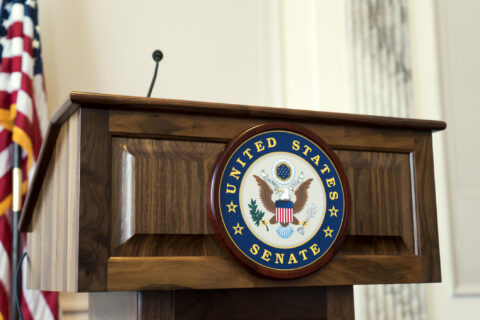Each year, millions of pounds of the nation’s fresh food go to waste. Over $400 billion is spent processing, transporting, storing, and disposing of food that is never eaten – even as at least 34 million Americans live in food insecure households. This waste also has a toll on the environment as the natural resources to produce food that is wasted are, in turn, wasted as well. In addition, reducing and diverting organic food material from landfills can also reduce methane pollution, a powerful greenhouse gas.
It’s time for policymakers at all levels of government to double down in meeting these challenges. Cities such as Boise, Idaho, and College Park, Maryland offer programs for household food waste collection. Fortunately, Washington is also making it a priority, and recent changes at the federal level will make it easier for cities across the country to get involved.
In January, President Biden signed into law the bipartisan Food Donation Improvement Act (FDIA), which clarifies existing food donation laws and makes it easier for cities and businesses to work together in the fight against food waste and food insecurity. Specifically, the FDIA strengthens the protections in the Bill Emerson Good Samaritan Food Donation Act, which passed in 1996 to encourage companies to donate surplus food and grocery products to nonprofits by offering civil and criminal liability protections. Unfortunately, many farmers, retailers, manufacturers and restaurants continued to cite fear of liability in their reluctance to donate surplus food. The FDIA has clarified and expanded protections in the original law to ensure all businesses can confidently donate their surplus food.
What Does This Mean for Cities?
Without fear of liability associated with donating surplus food, cities should feel confident to pursue new programs designed to increase those donations.
In California, for example, cities and counties are now required to implement food recovery programs that will seek to recover 20 percent of edible food currently being disposed of by 2025 under guidelines established by SB 1838 (2017). The law takes effect in two phases: 1) wholesale food vendors, food service providers, and food distributors are already required to donate excess food; 2) restaurants, hotels, large venues, and state education facilities will be required to adopt programs to donate their excess food by 2024. In fact, California businesses have already proven the effectiveness of this legislation. Businesses in Santa Clara County donated nearly 5 million pounds of food in the first 6 months after the law went into effect.
Implementation of the FDIA should also embolden new public-private partnerships and encourage cities to close the hunger gap by creating local pipelines between food sources within the community, organizations who are keen to offer a helping hand, and those who need fresh, healthy, and locally sourced food. Cities could look at corporate partnerships to tackle “last-mile transportation,” which refers to the final step in a product’s journey from supplier to consumer. Especially amid ongoing supply chain and staffing challenges, the “last mile” is often rife with hurdles when it comes to transporting meals.
Grubhub has supported organizations like Rescuing Leftover Cuisine and MEANS Database—two organizations focused on food rescue programs that secure surplus food from restaurants in Chicago, Denver, Los Angeles, Las Vegas, Oakland, Philadelphia, Providence, and San Francisco and deliver it to those experiencing food insecurity. With the passage of the Food Donation Improvement Act, companies with existing personnel and infrastructure can help smooth and speed up the process.
Other Federal Resources
The U.S. Environmental Protection Agency and the U.S. Department of Agriculture provide important resources, including funding opportunities for local governments, businesses, and individuals to reduce food waste.
The White House has championed reducing barriers to food recovery in the National Strategy on Hunger, Nutrition, and Health. This is one of many pillars that works to support access to healthy food while prioritizing the roles of nutrition and food in our nation’s health and ecosystem. Congress will also continue to elevate this issue as they take up consideration of the Farm Bill. Local leaders are encouraged to share their feedback with the Senate Committee on Agriculture, Nutrition, and Forestry as they solicit stakeholder feedback on this important piece of legislation for both urban and rural communities.
Grubhub was proud to be an original member of the coalition of companies, not-for-profits, and educational institutions to advocate for the FDIA’s passage. The FDIA won’t solve all of the nation’s food insecurity problems, but it is an important step in reducing barriers to closing the hunger gap.
About the Author
JR Starrett is the Director of State and Local Government Affairs with Grubhub.








